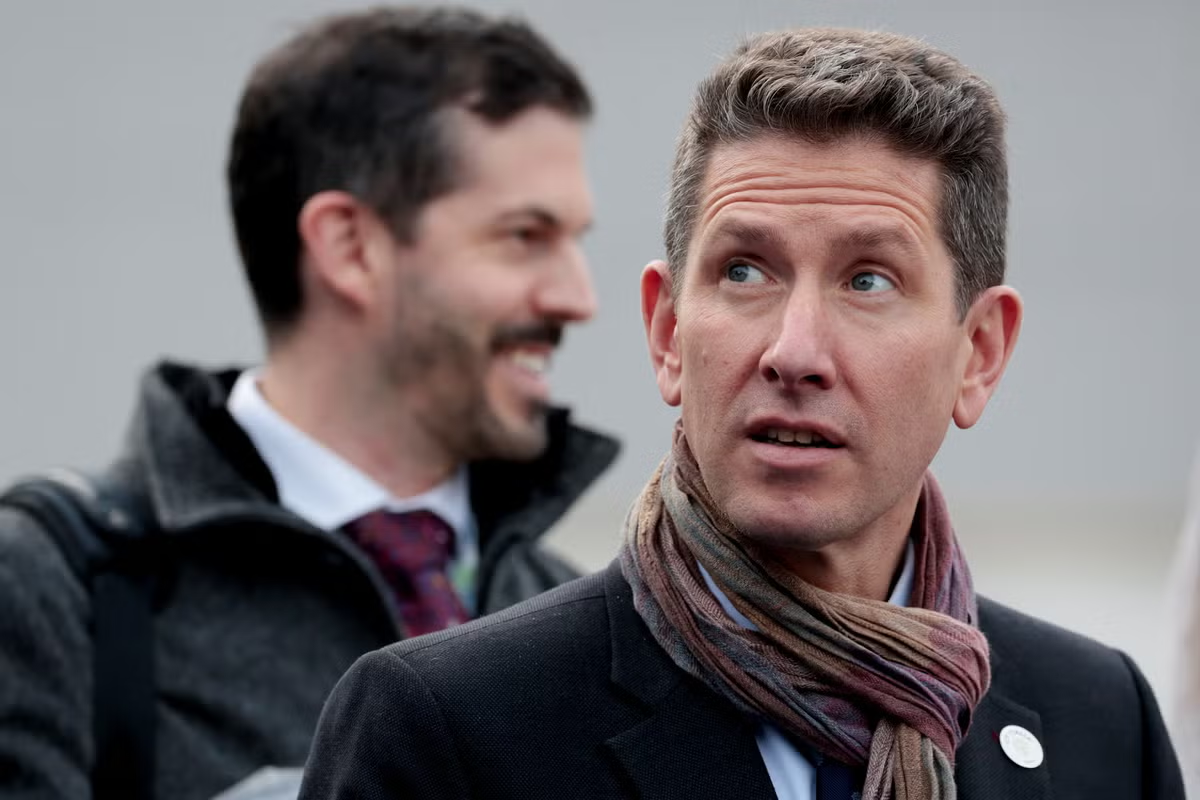Denemarková believes Czech society still hasn’t begun to face its pre-1989 past
Portrait of RAdka Denemarková by Soňa Pokorná, photo used with permission
Last month the Czech Republic was rocked by a literary scandal that soon took on political overtones: Czech author Jan Novák released the first ever Czech biography of Milan Kundera, a Czech-French author who enjoys great popularity worldwide but is often frowned upon in the Czech Republic.
The 900 page-long book covers the Czechoslovak years of Kundera’s life before he went into exile in France in 1975. It describes his early literary career, including his full endorsement of Stalinist ideology, many of his sexual encounters and his alleged collaboration with the Czechoslovak State Security. The book has caused a sensation, while the reaction in traditional and social media has been mixed to say the least.
To understand the many aspects of the debate, Global Voices talked to Radka Denemarková, one of the most awarded contemporary Czech writers, who is also a literary critic and a translator from German. The interview was edited for brevity.
Filip Noubel (FN): Is the scandal around the alleged collaboration of Kundera with the Czechoslovak State Security a sign that Czech society has not made its peace with the lustration process that led to purges of communist-era government officials?
Společnost se s obdobím před rokem 1989 vyrovnávat ještě ani nezačala. A letošní kniha o Kunderovi takovým krokem není, naopak, je tu v sázce sama polarita viníků a obětí. Až se společnost začne narovnávat, tak budou konečně vycházet knihy o lidech, kteří Kundery a další do podobných situací dostali.
Kniha je dílem šikovného řemeslníka, ale není o Kunderovi, je o Novákovi, z každé stránky čiší nadřazené já a bezbřehý sadismus, řečeno s Jiřím Kolářem „strašlivá nevzdělanost, která zahaluje text jako neproniknutelná mlha“. Chybí zásadní kunderovské jádro, ironie a povědomí o umění (evropského) románu.
Takový text má vycházet na pokračování v bulvárním deníku, kam patří. Ovšem s literaturou, natož pravdou nemá příliš společného. Kniha sama je spíše odrazem dnešní buranské mentality. Kniha je reklamním trikem, profesionálně zpracovaným produktem. Její jazyk je nasycený dikcí prokurátorů, připomíná padesátá léta, která autor Kunderovi vyčítá.
Na knihu o Kunderovi si musíme počkat, měla by ji napsat inteligentní, vzdělaná, citlivá mladá žena, protože Kunderův svět je světem patriarchálních hodnot, které Novák odhalit nemůže, protože je sám žije.
Radka Denemarková (RD): Czech society hasn’t begun to face its pre-1989 [the end of communism, also known as the Velvet Revolution] past. And this year’s book about Kundera is not a step forward in that direction. On the contrary, what is at stake here is the polarity of perpetrators and victims. When our society will finally get its act together, then we will finally have books about the people who got Kundera and others in the situations we are currently witnessing.
This book is the product of a skilled craftsman, but it is not about Kundera, it is about Novák. Each page reeks of an inflated sense of ego and endless sadism. As Jiří Kolář [an influential Czech author who sided with Havel and other dissidents] wrote, it is an example of a “terrible lack of culture, which covers up the text like an impenetrable fog”. What is missing in this book is the essence of Kundera, his irony and his awareness of the art of the European novel.
Such a text can only be released as instalments in some yellow press publication, where it belongs. It has little to do with literature, and even less with truth. The book itself is an expression of today’s country bumpkin mentality. The book is an ad trick, a professionally developed product. Its language and tone belong to state prosecutors and recall [the period of Stalinist show trials] 1950s , for which the author blames Kundera.
We still await a book about Kundera written by a young, sensitive, educated and intelligent woman, as Kundera’s world is based on patriarchal values, with which Novák himself cannot identify, because his life is also based on them.
FN: Why is Kundera so unpopular in the Czech Republic?
RD: Protože je úspěšný v zahraničí a Čechy vůbec nepotřebuje. České myšlení je hluboce provinční, závistivé, uznává jen místní celebrity. Ale pozor, je to daleko složitější, Kundera je Francouz elitářstvím i jazykem, který si zvolil. Nechce mít s Čechami nic společného i proto, jako by se bál, že se odkryje jeho skutečný předsrpnový příběh. O ten nestojí. Už si vybájil jiný.
Kundera je přitom v jistém a paradoxním slova smyslu poctivý, jednolitý a důsledný, chová se ke svému životu jako ke svému dílu, dílo je pouze to, za čím autor sám stojí ve chvíli bilancování. A k tomu, co by se dalo nazvat „jeho“ dílem podle něj nepatří, co je nezralé, co je nezdařené. Patří ale rovněž ke generaci, která nerada připomíná, že tanky v roce 1968 byly poslány na expartajníky, mnozí z nich Stalinovi v padesátých letech ochotně pomáhali věšet oprátky. Kundera sice s Čechami nechtěl mít nic společného, takže se bohužel ke kauzám z dob komunismu kolem své osoby nevyjádřil, a kdo je jednou v podezření, že napomáhal režimu, který vraždil, musí se postavit ke svým činům. Protože jinak urážíme mrtvé. Kundera ale není Günter Grass, který se k problematickým činům mládí za nacismu vrátil v knize Loupání cibule. Kundera totiž na rozdíl od Grasse nikdy nebyl tak vyhraněně politický, nikdy se netvářil jako morální autorita.
V širším kontextu Kunderův případ ale otevírá zásadnější, širší témata, v němž je i on obětí. Například soudy s komunistickými zločinci se tu vlekly, nikdo nebyl, není a nebude potrestán, protože společnost odmítá přijmout podíl viny.
Ke Kunderovi měl a má navíc odstup i Havlův disidentský okruh jenom proto, že Kundera tvrdil, že disidenti jsou pokaždé mimo realitu. Češi jako národ plebejců jsou také alergičtí na projevy elitářství. Proto mají škodolibou radost nad každým pokleskem a v Čechách si pokaždé našli zástupné „viníky“ v osobnostech. Zatímco skuteční viníci nepozorovaně unikli. A stejně je vidět na Kunderu. Plivají na něho hlavně ti, kdo mají vždy navrch.
RD: Because he is popular abroad and he doesn’t need the Czech Republic at all. Czech mentality is deeply provincial, full of jealousy, and recognizes only local celebrities. But beware, it is all very complicated: Kundera is French because of his elitism and choice of language. He doesn’t want to have anything in common with the Czech Republic, so that the truth about what he did before 1989 will not surface. He doesn’t want that because he has already told another tale about his life.
Yet Kundera is paradoxically honest, uniform and consistent, he treats his life the same way he treats his work, because when it comes to considering life’s outcomes, the author can only rely on his or her works. And what was immature, what was a failure, doesn’t belong to the works. At the same time, Kundera belongs to a generation who doesn’t like to remember that in 1968 [the year of the Soviet invasion of Czechoslovakia] tanks were sent against former Communist Party members, many of whom willingly helped Stalin to hang opponents in the 1950s. Kundera perhaps didn’t want to have anything in common with the Czech Republic, thus he unfortunately didn’t take a stand on his role during the communist era. But anyone who is once suspected of having helped a regime that killed people must answer for his acts. Otherwise we insult the dead. Yet Kundera is not Günter Grass, who talks about his problematic actions in his youth during the Nazi period in the book “Beim Häuten der Zwiebel” (“Peeling the Onion“). Kundera, unlike Grass, was never had such an acute sense of the political, never presented himself as a moral authority.
But the case of Kundera opens a larger and even more important topic, of which he is also a victim. For example, the trials of communist crimes dragged on here, no one was, is not and will not be condemned, because society refuses to accept its share of guilt.
The dissident circles around Václav Havel kept and still keep their distance from Kundera, because he once said that they have no sense of reality. Czechs are a nation of plebians who are allergic to any form of elitism. That’s why they experience a form of schadenfreude at anyone’s fall, and they always find ideal culprits in public figures, while the real culprits get away, The same is happening with Kundera. The ones spitting at him are those who have the upper hand.
FN: Why did you chose to include Kundera as a character in your most recent novel, “Hodiny z olova” (“The Hours of Lead”)?
RD Pro mě je Kundera jako postava (nejen) povýšeného elitáře důležitá pro objasnění češství, českého údělu a mentality středoevropského prostoru, do kterého svými výtečnými romány patří (k ironii dějin patří, že v roce 1954 se Havel po maturitě na večerním gymnáziu hlásil na různé vysoké školy, v přijímací komisi na filmovou fakultu AMU seděl Milan Kundera, Havel kvůli kádrovému posudku přijatý nebyl).
Kundera odmítal podepisovat petice a rebelovat. Na což má každý právo. Ale Havel mu vytýkal něco jiného: že téměř programově odmítá vidět i tu druhou stránku těchto věcí. Totiž nepřímý a dlouhodobý význam, který mají. Havel říkal, že Kunderův apriorně skeptický vztah k občanským aktům, které jsou bez naděje na okamžitý efekt a jeví se pouze jako výraz snahy jejich autorů demonstrovat svou vlastní skvělost, dobře zná. A nesdílel ho. Havel cítil, že je třeba něco udělat nejen z principu, ale že se má něco dělat vždy, když jsou lidé nespravedlivě zavíráni. Zatímco my Havla doma dnes pomalu zesměšňujeme, například pro čínské disidenty je obrovským vzorem, i tam vznikla Charta 08.
Nebezpečí vidím ještě jinde. Arogantní knihou o Kunderovi odvádíme pozornost od skutečných zločinců. Tváříme se, že nevidíme tváře vrahů ani kolaborantů okupačního režimu před rokem 1989. Kam se rozplynuli příslušníci Státní bezpečnosti? U nás nebyl za zločiny komunismu nikdo (jako například v západním Německu za zločiny nacismu) vyloučen z veřejného života. Po roce 1989 se přelili do parlamentu a podnikatelských kruhů, jeden z nich je v roce 2020 premiérem české vlády. To je náš hlavní problém, o kterém se společnost bojí mluvit. Ale my potřebujeme osudy v soukolí dějin pochopit do hloubky, v jejich celistvosti a existenciální obnaženosti, jak se o to snaží Kundera ve svých románech, ne je pošlapávat, zesměšňovat. A já opakuji s Lao-c´: „Každá z bytostí nese ve svém týle temnotu,/ ve svém náručí světlo./ I když je v člověku něco špatného,/ je třeba ho zahanbovat?“
RD For me Kundera as a character representing this elistim is important to explain the Czech mentality, and of Central Europe, to which he belongs with his outstanding novels. The irony is that in 1954 when Havel finished school, he tried to get into different universities, including the Film Academy. The commission reviewing the candidates included MIlan Kundera, and Havel was not accepted because his family did not have the right political background, as the regime privileged workers and farmers while Havel came from a bourgeois family.
Kundera refused to sign [anti-communist] petitions and to be a rebel. Which is his right, of course. But Havel reproached him for something else: that he refused to see the other aspect of dissident activism — the indirect meaning it carries over a long period of time. Havel used to say he knew very well Kundera’s a priori skepticism regarding civic activism, and [that he thought] it is hopeless as it has no immediate effect and is just an attempt by dissidents to look good. But Havel didn’t share that skepticism, he felt one needs to do something not just out of principle, but that one must always act when people were being detained unfairly… While we are almost making fun of Havel today, he remains an huge inspiration for Chinese dissidents that created Charter 08.
I see the danger elsewhere: this arrogant book about Kundera is a distraction from the real crimes. We pretend we don’t see the faces of criminals and collaborators of the pre-1989 regime. To where did the members of the State Security dissolve? Here, no one was expelled from public life for crimes committed under communism, as was the case, for example, in Western Germany for crimes committed under Nazism. After 1989 those people entered parliament, business circles and one of them today is the current Czech Prime Minister. This is our own problem, which our society is afraid to discuss. But we need to understand deeply the fate of people in the context of history… just as Kundera tries to do it in his novels, and not trample or make fun of those human fates. I repeat the words of Laozi: “Each person carries obscurity on their head/ and light in their hands/ And even if there is something bad with a person / do we need to embarrass them?”











